If you have ever hatched chicken eggs, then you’re hooked, right? You can’t just do it once.
But what if you could hatch eggs AND sell the baby chicks to the people in your hometown? Or even start a small hatchery?
What does it really take to hatch out eggs and sell the resulting cuteness?
Let’s find out.
From Beginning to End: Hatching Chicken Eggs and Selling Day Old Chicks
What are the most profitable chickens?
Which chickens bring in the most profit when they are sold as chicks? It’s a very good question to ask before beginning to hatch eggs. People buying chicks will usually want full-blood breeds. And it makes sense to try to hatch chicks that have the potential to bring in the most profit. But this might differ from place to place.
Knowing your area will be key to knowing which eggs to hatch and which ones will sell well. It’s a balance between choosing a popular breed and a breed that will be different enough to stand out and get attention. Here are a few ideas on how to gauge which breed to hatch in your local area:
- Ask local feed stores what kind of breeds they will be selling
- Create a poll in a local Facebook group and ask which breed people would buy
- Check Craigslist
- Join local or online poultry groups
- Attend poultry auctions or swaps
These are a few breeds to look into before deciding which to choose from. But remember to focus on your area and the chickens people are looking for!
- Marans. These are a good choice because people love the beautiful dark brown eggs they produce.
- Guineas. These can be a high-demand breed because of their awesome ability to eat ticks and keep the bugs to a minimum.
- Brahma. They have docile personalities, have great wintertime hardiness, and as egg layers, Brahma hens lay a significant amount of brown eggs.
- Silkies. Docile, beautiful birds. Laying about 3 eggs a week but are notoriously broody.
- Cochins. Docile, friendly, and fluffy. They are ornamental birds and not heavy laying hens.
- Orpingtons. Dual purpose, eggs, and meat. They tend to go broody and are a calm breed.
- Ameraucana. Hardy and sweet and tend to be broody. Lays a blue egg.
Points to consider when choosing a breed:
- Stay away from “fad” breeds. These are just that, a fad and will not usually be the desired breed the next year.
- Also, stay away from breeds that can be sexed at hatching. These will be problematic for you unless you do want to be raising and selling or butchering the roosters.
Take the time to research your specific area to learn what people are really looking for. It will be worth your time to ask some questions before you jump in with both feet.
You can find a lot of articles here on A Life of Heritage that will teach you a lot about poultry and be sure to check out Chicken Rich: Profitable Poultry Bundle–It’s FULL of to-do lists, checklists, record keeping sheets, and resource pages that will keep your flock healthy and YOU organized!
Where Do I Get My Hatching Eggs?
After you’ve made the decision on what type of breed to hatch, you need to find the eggs. There are a few ways you can go about this. If you are just starting out and don’t have a purebred flock, there are many options available to purchase hatching eggs:
*From many reviews on the hatchery sites of the Maran roosters, they seem to easily turn mean. Keep that in mind as you choose a breed, reading the reviews is a great way to know the experiences of others.
If you would like to raise your own flock to produce hatching eggs, start out with one breed at a time. You can purchase hatching eggs and hatch them out or you could purchase chicks and raise them until they start laying. If you have several roosters and several breeds, you will need to have a setup where the different breeds are separated.
An important note to consider: good quality chicken stock will not come from hatcheries or catalogs. If you truly want to raise a desired and sought-out flock, be willing to pay for quality stock to begin with. Find breeders sanctioned by the ABA and APA at poultry shows or online.
How Do I Store Eggs Before Hatching?
It is best to store eggs at a temperature of 50-60° because lower and higher temperatures may reduce hatchability. Hatching eggs should not be kept in a refrigerator because the temperature is too low.
Eggs that have cracks, have thin shells, shells with ridges, or are excessively dirty or abnormal in size or shape should not be kept for hatching. Excessively large or small eggs are often not fertile and shouldn’t be set in the incubator.
For best results, hatching eggs should not be stored for more than 10-14 days before they are set. They should be stored in egg cartons with the small end of the egg down and held at a slant and turned twice a day. One simple method of turning the eggs is to prop one end of the carton up on an object at an angle of about 35° and then just shift which end is elevated twice a day.
When is the Best Time to Hatch Chickens to sell them?
Do chicks hatch all year round? They can, but this will in large part, be area-specific. In the north, most, if not all, chicks are sold in the spring. But in warmer climates, there may be a need or demand for chicks year-round. You know your area. Don’t hatch chicks in cold winter months. If you do, also make a plan to keep them until spring to try to sell them then if they don’t sell as chicks.
Can You Hatch an Egg from the Supermarket?
No. The eggs from the supermarket are not fertile.
Chicken Egg Hatching Process
If you haven’t had the chance to hatch eggs, it’s fun and amazing to see how in just 21 days a chicken can hatch and almost immediately be running around!
This process of hatching eggs is done perfectly by a hen but can be simulated by you as well; which truly is an amazing miracle of life!
It begins before the egg is laid through fertilization and then the division and growth of living cells. After the egg is laid there is no growth, it is a stage of inactive embryonic life.
But the moment the egg is set in the incubator or under a hen…life begins.
FIRST DAY
16 Hours: First sign of resemblance to a chick embryo
18 Hours: Appearance of alimentary tract
20 Hours: Appearance of vertebral column
21 Hours: Beginning of formation of nervous system
22 Hours: Beginning of formation of head
23 Hours: Appearance of blood islands–vitelline circulation
24 Hours: Beginning of formation of eye
SECOND DAY:
25 Hours: Beginning of formation of heart
35 Hours: Beginning of formation of ear
42 Hours: Heart begins to beat (TWO days and the heart is beating! WOW!)
THIRD DAY
50 Hours: Beginning of Formation of amnion
60 Hours: Beginning of formation of nose
62 Hours: Beginning of formation of legs
64 Hours: Beginning of formation of wings
70 Hours: Beginning of formation of allantios
FOURTH DAY Beginning of formation of tongue
FIFTH DAY Beginning of formation of reproductive organs and differentiation of sex
SIXTH DAY Beginning of formation of beak and egg-tooth
EIGHTH DAY Beginning of formation of feathers
TENTH DAY Beginning of hardening of beak
THIRTEENTH DAY Appearance of scales and claws
FOURTEENTH DAY Embryo turns its head toward the blunt end of egg
SIXTEENTH DAY Scales, claws, and beak becoming firm
SEVENTEENTH DAY Beak turns toward air cell
NINETEENTH DAY Yolk sac begins to enter body cavity
TWENTIETH DAY Yolk sac is completely drawn into the body cavity; embryo occupies practically all the space within the egg except the air cell!
TWENTY-FIRST DAY Hatching of chick!
And during this whole process of development, you are instrumental in keeping the proper humidity and temperature and the eggs turned throughout each day.
You, my friend, are the hen!
Be sure to check out Chicken Rich: Profitable Poultry Bundle–It’s FULL of to-do lists, checklists, record keeping sheets, and resource pages that will keep your flock healthy and YOU organized!
Homemade Incubator for Eggs
But a hen needs a nest, right? 😉
This “nest” is the incubator. And it is essentially the most important thing to consider before hatching any eggs.
I personally believe that the homemade egg incubator we use is awesome. It is over thirty years old and going strong. I have excellent hatching rates and it is a hands-on experience, which I like. In the article linked above, you will find access to the building plans for that particular incubator and also other important considerations when choosing an incubator. This is one area you don’t want to gamble with. A good incubator will keep eggs alive with proper regulation of temperature, humidity, and egg turning.
Expert Tips for Incubating Chicken Eggs: Hatching Chicken Eggs Naturally
Before putting eggs in the incubator:
- Get your incubator ready 2-3 days before you plan to put in eggs.
- Clean thoroughly and disinfect (Basic H)
- Plug in and turn on thermostats to make sure they are working properly.
- Double-check that thermometers are working properly. Place two accurate thermometers in the center of the incubator at about egg level. Make sure they are both reading the same numbers and accurately.
- Adjust the temperature continually until it is consistently reading between 100-102°. (Consistently!)
- Only after you feel the temperature is accurate and consistently staying at the proper temperature, can you put the eggs in the incubator.
- Place an “X” on one side of the egg using a pencil. If you are manually turning the eggs, this will help as you turn the eggs. All “X’s” up one turn and all “X’s” down the next turn.
- If you are incubating a large number of eggs, place the eggs in for three consecutive days, putting one dozen in per day. This will keep the incubator less congested during the hatch days. As you mark with an “X”, also put “1”, “2” or “3” to remind you which day the egg was placed in the incubator.
After the eggs are placed in the incubator:
Chicken Incubator Temperature and Humidity
What is the best humidity for hatching chicken eggs? Throughout the first 20 days, humidity should be kept between 50-55%. This aids in breaking down the calcium of the eggshell, which will make it easier for the chicks as they hatch.
What is the ideal temperature for hatching chicken eggs? The temperature should be kept between 100-102° throughout the entirety of the incubation period. Keep in mind that as the chicks grow, and the larger they become inside the egg, the more heat they will produce. After day 17, it is important to keep an eye out for surges in temperature and quickly respond. Quickly turn the temperature down and spray the eggs with water to cool them. Temperature spikes can be detrimental to the chicks.
Turning Eggs During Incubation
If the incubator does not have an automatic egg turner, and the turning is done by hand, then they ideally should be turned at least 4 times a day: breakfast, lunch, dinner, and before bed. It is an easy process to turn them: the X is up one turn and the next turn the X is down. This is done to prevent the developing chick from sticking to the side of the egg.
Candling Chicken Eggs
On the 16th day, the eggs that are doing well are dark and there is somewhat of an air pocket on the big end of the egg.
Candling should be done very carefully, not allowing the egg to get too cold or hot. It should also be done as quickly as possible without cracking or damaging the shell in any way.
Egg Incubator Lock Down
On day 18, turn the eggs so the X is up and the big end of the egg is facing the front of the incubator. Lockdown begins and the incubator should not be opened until the chick is ready to leave the incubator. It should not be opened up to turn the eggs anymore. Only open it to spray or add water to the pans if the humidity gets too low. Too low of humidity during the hatching period will make it hard for the chicks to emerge from their shells. The humidity during these last days should be around 65%.
This tip will depend on the incubator used, but in the incubator I use, I add a wet towel under the eggs before lockdown begins. This can be done by carefully putting the eggs in an egg carton and laying the towel down quickly and adding the eggs back into the incubator on top of the towel with their X’s up and their big end facing the window.
If there are vents in the incubator they can be opened up and remember to carefully watch the temperature during this time. There can easily be a spike because of the heat the chicks are giving off. If this happens, spray them with water to cool them down quickly.
The chicks will start to hatch anywhere from the 20th to the 22nd day of incubation. This range, in part, is due to the temperatures that the incubator was kept at. If there were periods of lower temperatures, then the chicks may develop a bit slower and will hatch a bit later and vice versa.
After the Chicks Hatch
The chick can and should remain in the incubator for about 15-24 hours after hatching.
After 24 hours, the chick should be removed from the incubator and placed in a box with a clip-on light that is a 75-90 watt bulb. It will then need water and feed. On the first day, they can be given water. An eyedropper can be a useful tool at this point. And then the next few days, the feed can be mixed with the water, and then the food and water can be left out for them to use as they need it.
And now you have a fluffy day-old chick that can be sold!
How can I sell my chicks?
There must be a well-thought-out plan made before the chicks have hatched. In fact, it would be in your best interest to find buyers before the hatching process even begins. You need to know that there are homes for your chicks before hatching them or you may need to enlarge your own chicken coop. Many smaller chicken breeders take orders for chicks before they set them in the incubator. This is a great way to know how many to hatch and they are already sold before the process begins.
The easiest way to sell the chicks will be in your hometown because the shipping process takes on a whole new set of difficulties. Here are a few ideas to get you started on selling your day-old chicks.
Social Media
Create a “like page” on Facebook and let people in your area know to “like” the page for updates on what is available. Keep in mind that Facebook no longer allows the sale of animals. Also, join poultry groups for your state and area. Many times people will post looking for chicks and you can also post the details and when chicks will be available.
CRAIGSLIST
Post pictures of your chicks on Craigslist in the areas that are within a couple of hours’ drive of your location.
Who can resist the picture of a cute, fluffy chick? This is a great way to share pictures of the available chicks and to let people know that you are selling chicks.
LOCAL FLEAMARKET
The flea market is another great way and no-cost way to get the word out to locals about your available chicks.
This platform moves very fast and it usually works best to upload a photo as well. Create a hashtag for your location and business and use hashtags that are descriptive.
Personal Legwork to Spread the Word
SIGNS
- Local feed stores
- Pet stores
- Veterinarian offices
- Coffee shops
- Gas station bulletin boards
BUSINESS CARDS
Hand out business cards and ask local vet offices or feed stores if a handful of cards can be left on their counters to be handed out.
LOCAL FEED STORES
Work with local feed stores to provide them with a set amount of chicks each spring to sell. Negotiate pricing for both parties to benefit.
POULTRY SWAPS AND AUCTIONS
If you have enough available chicks and the timing is right, these might be a good option to participate in if they are in your area.
Selling to Local Growers
Keep an ear open to who might be interested in taking chicks to raise them for meat. It may be an advantageous situation for everyone if the grower began to buy locally.
Selling Chickens at Farmer’s Market
Research the local farmer’s market rules first, but this would be a great way to get the word out and possibly sell out of your chicks quickly. Bring along small boxes for people to easily take home the chicks. This may not work in some locations depending on what’s available for power to keep heat lamps on.
Be sure to check out Chicken Rich: Profitable Poultry Bundle–It’s FULL of to-do lists, checklists, record keeping sheets, and resource pages that will keep your flock healthy and YOU organized! How much do you sell baby chicks for?
The pricing of chicks depends on the breed and quality of the birds. But usually, they range between $3-$5. Some of the exotic breeds will bring in up to $18 a chick and remember those “fad” breeds? Sometimes they can go for as much as $100 for one bird! If you are starting out with a mixed breed, it will be on the lower end of $3 a chick.
Conclusion of Hatching Eggs for Profit
Breeding chickens for-profit and hatching eggs to sell day-old chicks may not be all it’s cracked up to be for everyone or every situation, but it may be something you will love and it may be a great fit for your situation!
The most important aspect of expanding any business or looking into new markets of profit is to do the important and necessary research before jumping in. There have been many ideas that I thought were brilliant and I thought they would help us expand and save money, but when I did the legwork and research, I found out that in reality, it was a horrible idea and would have cost much more than it would have saved us in both time and money.
The good news is that starting a hatching business doesn’t require a large investment and it could be started small to get a feel for the market in the area. And if it doesn’t work out, it can easily be stopped without any repercussions.
Did you know you can even make money selling chicken feathers? Find out more: Chicken Feathers

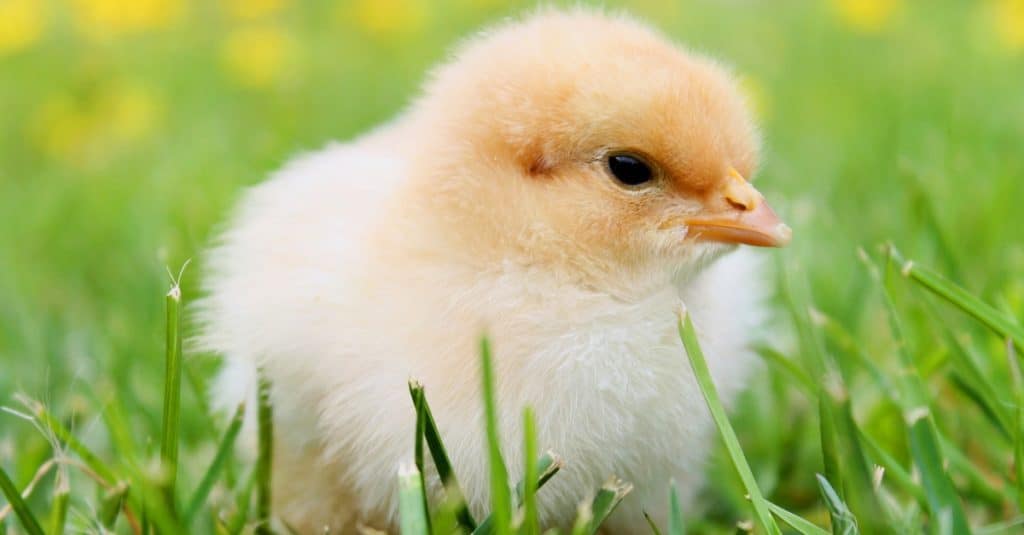
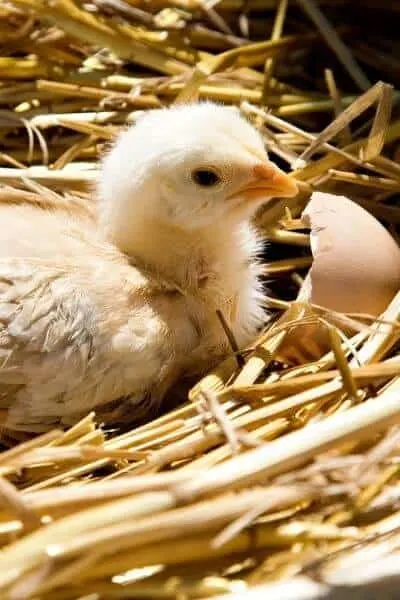
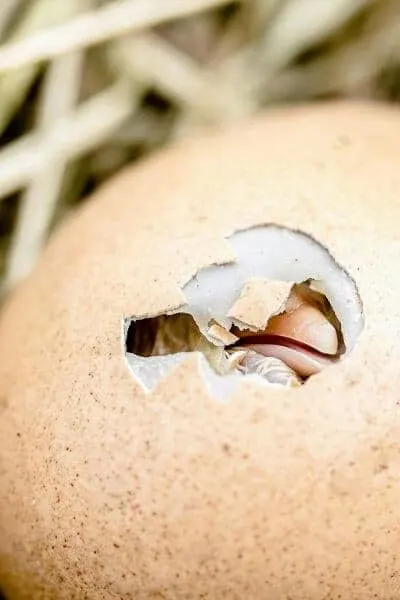
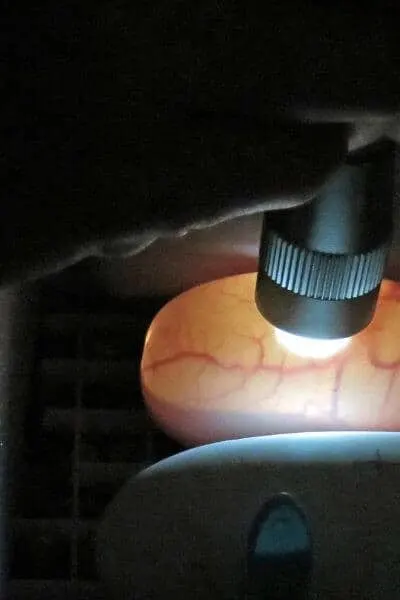
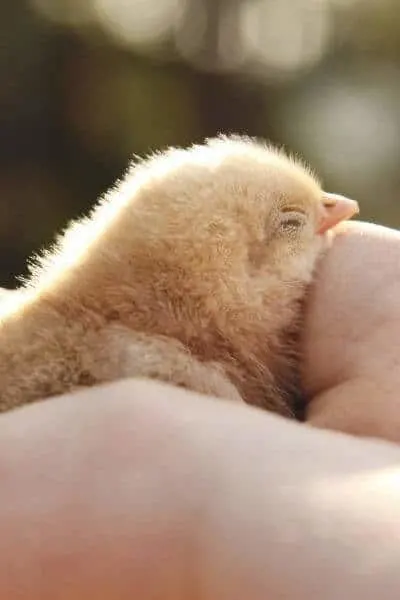
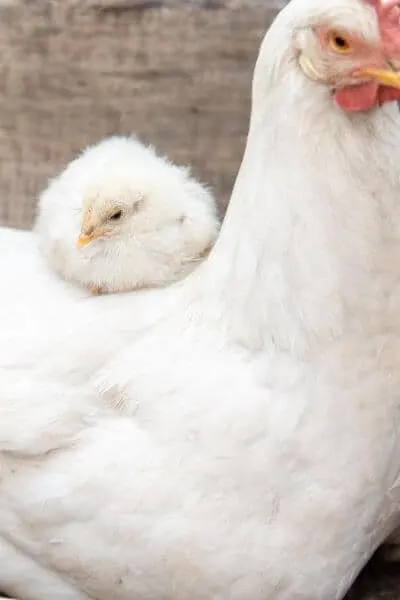
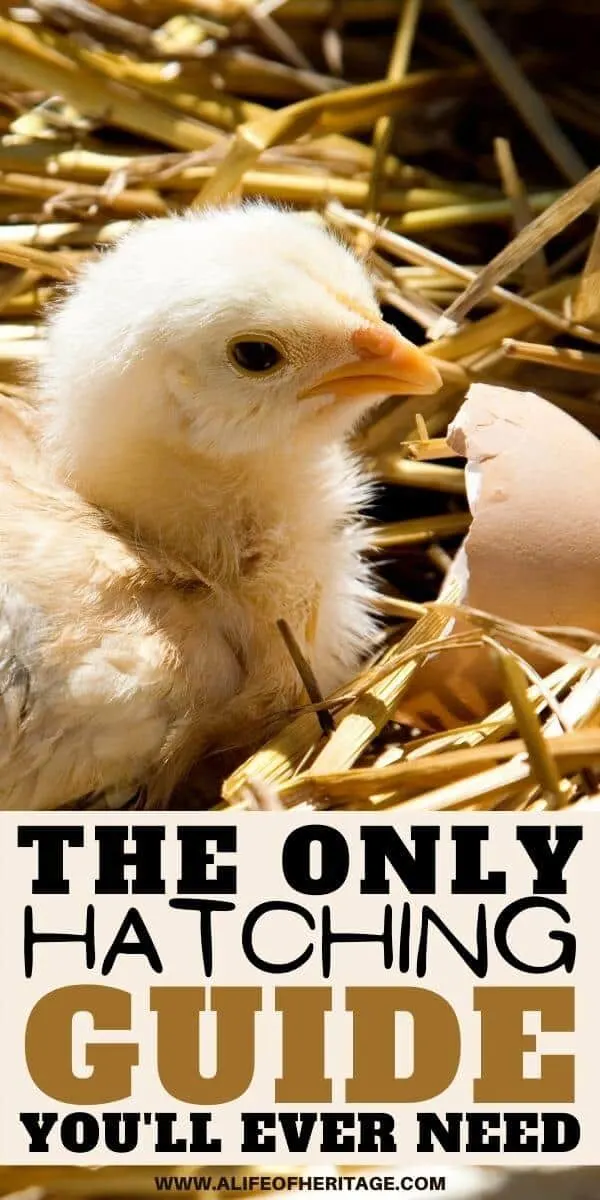
Prudence Masina
Sunday 22nd of November 2020
I found the information so helpful thank you very much
Delci Plouffe
Tuesday 24th of November 2020
I'm so glad! Thank you for letting me know!
Daniel
Tuesday 10th of November 2020
I plan on starting a chick hatchery business, I did do a business plan and I found this article to be really interesting and on point. The main problem can be competition in the markets and this is something to note when stating a hatchery business. I really loved this article.
ARIEL
Tuesday 24th of November 2020
THANK you for the information.It really help us on our small chicken backyard 💪
Delci Plouffe
Thursday 19th of November 2020
I'm so very glad it was helpful! Many blessings on your endeavors!
abigail
Friday 25th of September 2020
im much interested in hatching my own chicks . currently doing broiler chicks this is so helpful.
Muhammad Nazeer Abdullah
Wednesday 25th of May 2022
@abigail, pls for long I'm interested in hatchery, I saw it you said you're currently doing broiler chicks, pls help me with guid on how to rise broiler as breeds
Melanie
Saturday 20th of June 2020
I’m trying to determine whether there are laws against me selling chicks from my home. I was told I need to register as a seller? I live in California but can’t find any such laws.
Delci Plouffe
Thursday 6th of August 2020
Can you contact your local extension agent? They are a wealth of information and should be able to get you connected to the laws and details of selling chicks.
Keletso
Friday 12th of June 2020
Thank you very much for the information, i just started small scale hatchery project and i find this very useful.
Isa
Thursday 19th of August 2021
@Keletso, please contact me on 0813876823 will like to start hatching eggs but I don't know how please contact me